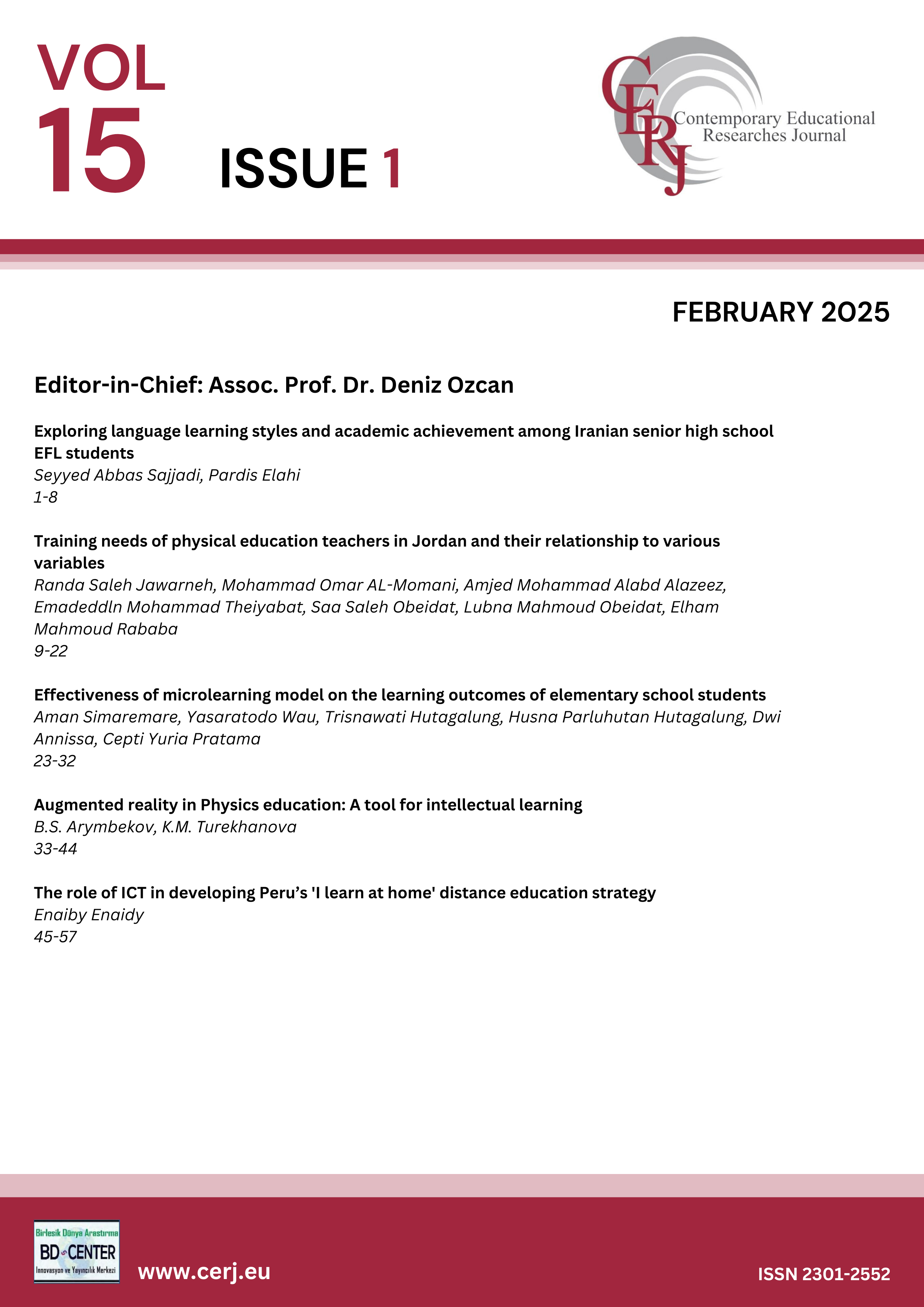Exploring language learning styles and academic achievement among Iranian senior high school EFL students
Main Article Content
Abstract
This study aimed to investigate the relationship between language learning styles and academic achievement among Iranian senior high school EFL students. The study addressed a gap in the literature regarding the impact of learning styles on EFL students' performance in Iran, as few studies have explored this connection in this specific educational context. The target sample consisted of 40 randomly selected 11th-grade students from two public schools in Kazerun, Fars province, Iran. The VARK Learning Style Index was used to identify the students' preferred learning styles, and their final exam achievement test scores were used to measure academic performance. Descriptive statistics were employed to analyze the data. The results revealed that the majority of students were auditory learners, followed by kinesthetic and reading/writing learners, with visual learners making up the smallest group. Notably, auditory learners achieved the highest mean test scores, indicating a potential link between auditory learning preferences and academic success. These findings suggest that recognizing and adapting to individual learning styles, particularly auditory preferences, can enhance student engagement and academic achievement. The study provides valuable insights for educators aiming to optimize language instruction based on students' learning style profiles.
Keywords: Academic achievement; EFL learner; learning style.
Downloads
Article Details

This work is licensed under a Creative Commons Attribution-NonCommercial-NoDerivatives 4.0 International License.
Authors who publish with this journal agree to the following terms:
- Authors retain copyright and grant the journal right of first publication with the work simultaneously licensed under a Creative Commons Attribution License that allows others to share the work with an acknowledgement of the work's authorship and initial publication in this journal.
- Authors are able to enter into separate, additional contractual arrangements for the non-exclusive distribution of the journal's published version of the work (e.g., post it to an institutional repository or publish it in a book), with an acknowledgement of its initial publication in this journal.
- Authors are permitted and encouraged to post their work online (e.g., in institutional repositories or on their website) prior to and during the submission process, as it can lead to productive exchanges, as well as earlier and greater citation of published work (See The Effect of Open Access).
